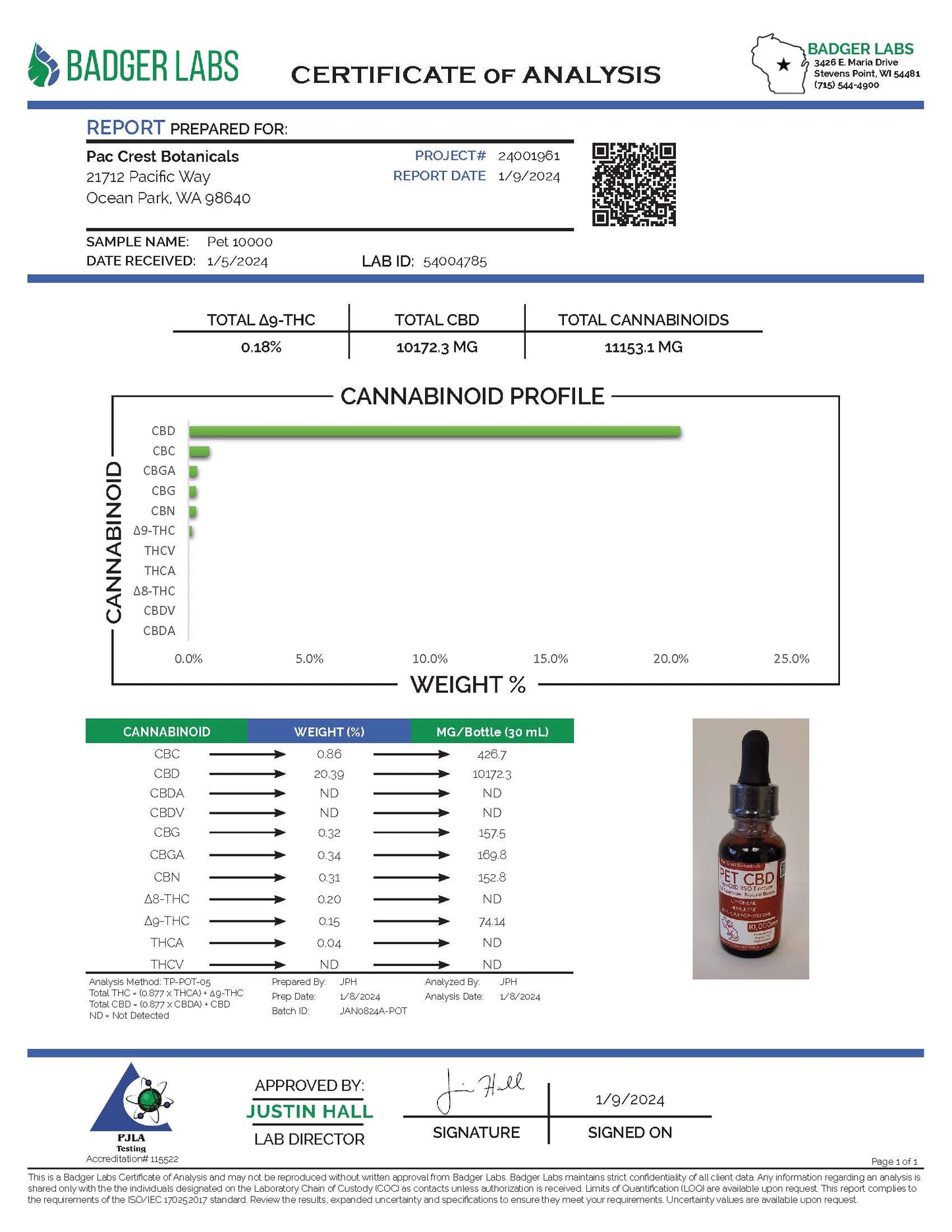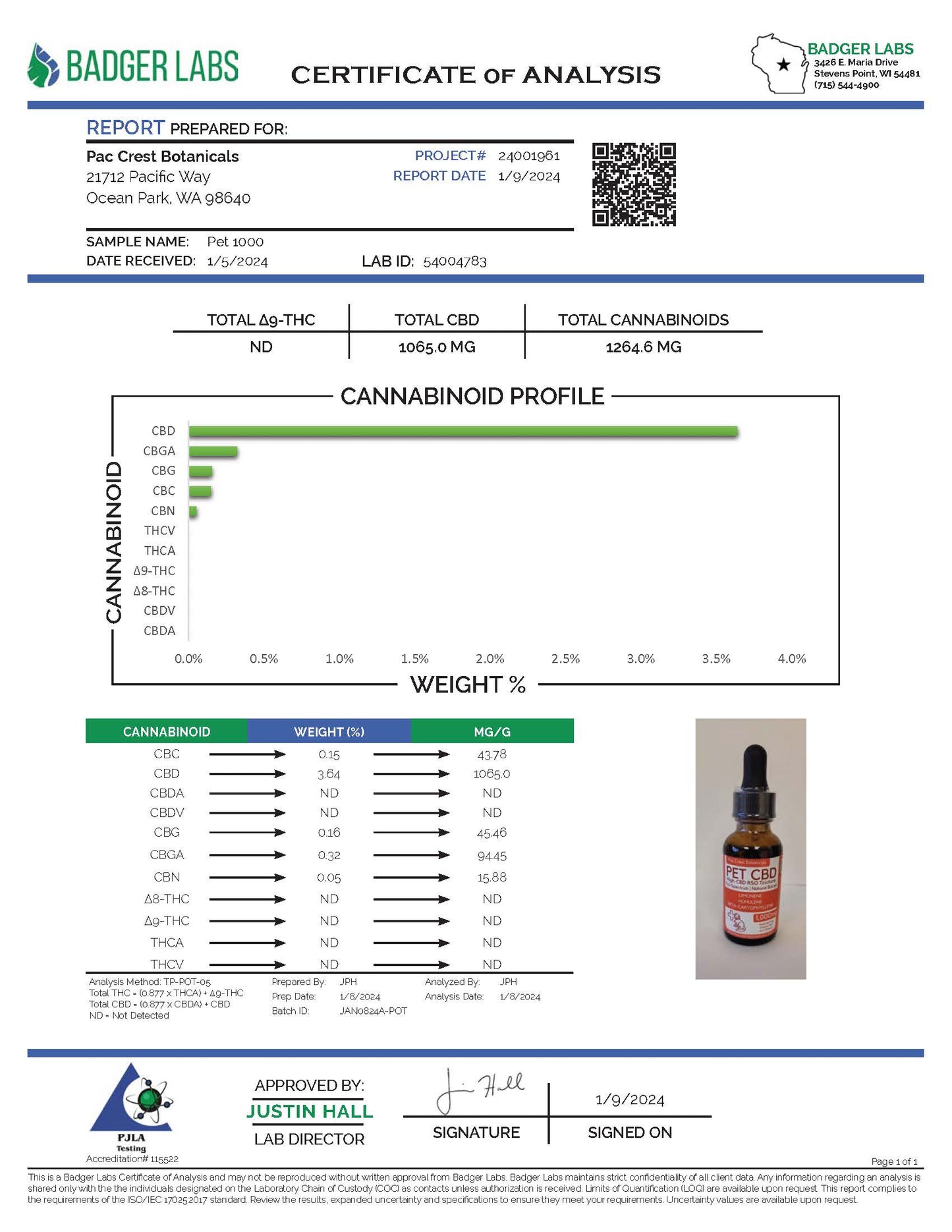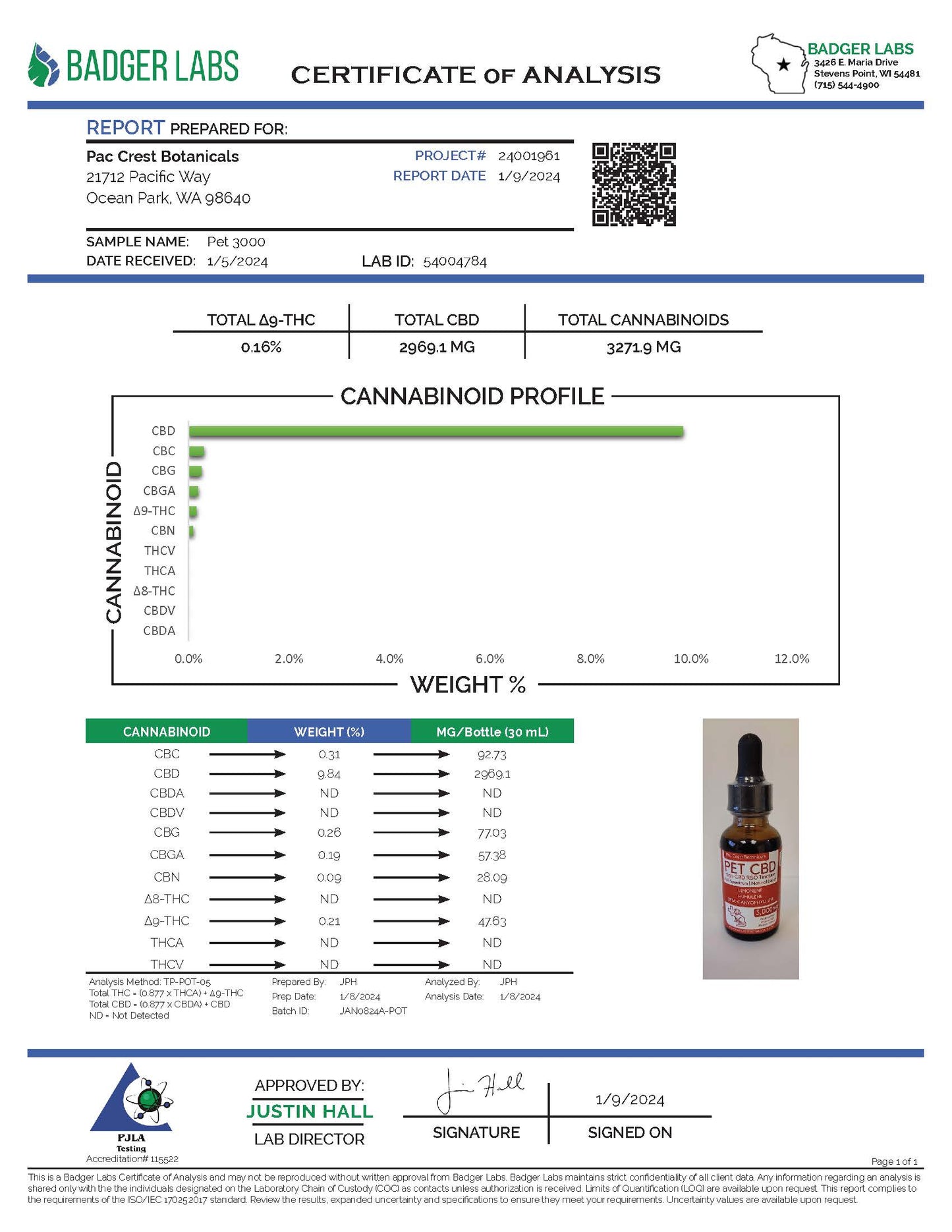Pac Crest Botanicals
High-CBD RSO Full-Spectrum Pet Blend
High-CBD RSO Full-Spectrum Pet Blend
Couldn't load pickup availability
We create our pet blends using RSO Full-Spectrum Extract, both pesticide and solvent-free, hemp-derived CBD oil. Meaning the entire cannabis plant is used to provide a wide range of organic plant compounds, like cannabinoids, flavonoids, and other phytonutrients. These compounds work synergistically with Cannabidiol, stimulating what is called the Entourage Effect. THC is present in trace amounts, always less than 0.3%.
We use organic MCT oil as a carrier and natural bacon for flavor.
While research on the potential anti-cancer effects of CBD (cannabidiol) is still ongoing, there have been several studies that suggest CBD may have therapeutic potential in fighting cancer. Here are a few key studies:
-
Cannabidiol as a novel inhibitor of Id-1 gene expression in aggressive breast cancer cells: This study, published in the journal Molecular Cancer Therapeutics in 2007, demonstrated that CBD significantly reduces the expression of the Id-1 gene, which is associated with aggressive breast cancer cells. Source
-
Cannabidiol induces programmed cell death in breast cancer cells by coordinating the cross-talk between apoptosis and autophagy: Published in the journal Molecular Cancer Therapeutics in 2011, this study showed that CBD induces programmed cell death (apoptosis) in breast cancer cells by modulating the cross-talk between apoptosis and autophagy. Source
-
The inhibitory effects of cannabinoids, the active constituents of Cannabis sativa L. on human and mouse T-lymphocyte proliferation in vitro: This study, published in the European Journal of Pharmacology in 2003, demonstrated that CBD and other cannabinoids inhibit the proliferation of T-lymphocytes, suggesting potential anti-cancer effects. Source
-
Cannabidiol inhibits cancer cell invasion via upregulation of tissue inhibitor of matrix metalloproteinases-1: Published in the journal Biochemical Pharmacology in 2010, this study found that CBD inhibits cancer cell invasion by upregulating tissue inhibitor of matrix metalloproteinases-1 (TIMP-1), which plays a key role in suppressing cancer metastasis. Source
-
Cannabidiol inhibits angiogenesis by multiple mechanisms: This study, published in the British Journal of Pharmacology in 2012, demonstrated that CBD inhibits angiogenesis (the formation of new blood vessels) through multiple mechanisms, which could impede tumor growth and metastasis. Source
-
Cannabidiol as potential anticancer drug: Published in the British Journal of Clinical Pharmacology in 2013, this review article summarized preclinical and clinical evidence supporting the potential of CBD as an anticancer drug, highlighting its ability to induce apoptosis, inhibit cancer cell migration and invasion, and enhance the efficacy of conventional cancer treatments. Source
-
Cannabidiol induces apoptosis in human pancreatic cells via a CB2 receptor-dependent mechanism: This study, published in the journal Gut in 2006, found that CBD induces apoptosis in human pancreatic cancer cells via a mechanism involving cannabinoid receptor 2 (CB2), suggesting a potential therapeutic strategy for pancreatic cancer. Source
-
Cannabidiol as a potential anticancer drug: Published in the journal British Journal of Clinical Pharmacology in 2013, this review article summarized preclinical and clinical evidence supporting the potential of CBD as an anticancer drug, highlighting its ability to induce apoptosis, inhibit cancer cell migration and invasion, and enhance the efficacy of conventional cancer treatments. Source





We are using the health formula and the CBD and we have seen such an improvement. She's getting up and moving around and wants to play and her coat has come back. Very thankful for this product. We have referred this product to our friends and their dogs are starting on it now.
Michael is a gem in the rough. So many scammers- this guy is insane in the best way. Dog was diagnosed with leukemia - they are baffled he has an appetite and energy that is building back. Following this regiment for the rest of my dogs life.
Im thrilled to have such a high quality and local company i can trust with my fur babies health.
This CBD product has been an absolute game changer for my 19-year-old dog, Gizzy. She struggles with cognitive decline and sundowners, but since starting this, I’ve seen such a positive difference. She’s calmer, more focused, and her overall mood has improved so much. It’s brought peace and comfort to both of us—truly a lifesaver!
High-CBD RSO Full-Spectrum Pet Blend





